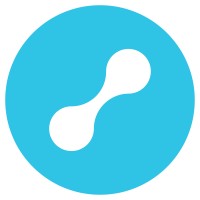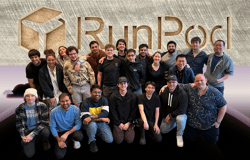Lunit, a portmanteau of ‘Learning unit,’ is a medical AI software company devoted to providing AI-powered total cancer care.
Our AI solutions help discover cancer and predict cancer treatment outcomes, achieving timely and individually-tailored cancer treatment.
🗨️ About the team
Who will I spend 8+ hours/day with?
- You will work in the AI Division (Oncology AI Research Department), with a group of enthusiastic and talented AI research scientists and engineers. We contribute to real-world products, while also solving meaningful and applied research projects.
- The teams and members of the department have diverse cultural backgrounds (9 nationalities!), experience, and interests. Some of us are passionate about engineering, others about model-centric AI, and some others about data-centric AI. In the end, we are all proud of contributing to improving the lives of cancer patients.
How do they bond as a team?
- Our team fosters a friendly and open environment, encouraging idea-sharing and collaboration in research, engineering, and team events. Activities include research seminars, research workshops, attending top-tier conferences, and team meals.
👉
🗨️ About the position
What will make me proud to work here?
- You will have a direct impact on our mission to Conquer Cancer Through AI by contributing to more personalized treatment planning for cancer patients or early diagnosis of cancer. Our software has been recognized as best-in-class worldwide and is being used in real-world hospitals, laboratories, and research studies.
- Your work will push forward our AI research frameworks, inference engines, and performance of Lunit’s AI models. Lunit has best-in-class products thanks to these components.
- We have access to very large in-house labeled and unlabeled datasets. And, the cloud computing power to leverage them.
- Current projects span a variety of topics, including but not restricted to object detection, semantic segmentation, large-scale self-supervised learning, domain generalization, active learning, multi-task learning, ML pipelines, among others.
- We contribute back to the community through publications, blog posts, dataset releases, and the organization of public events such as machine learning challenges or tutorials.
- Experience personal and professional growth by working on diverse projects and collaborating with talented multi-disciplinary teams.
🚩 Roles & Responsibilities
- Design, develop, and validate innovative AI algorithms for the analysis and interpretation of histopathology images.
- Guarantee the high quality of the data fueling SCOPE products by participating in data-centric research, focused on the acquisition, transformation, and management of informative pathology images.
- Actively participate in the development and improvement of medical AI research frameworks and products, offering insights and expertise from high-quality research endeavors.
- Contribute to the internal research codebases with high-quality code and development standards.
- Collaborate closely with Research Engineers, Medical Doctors, and other stakeholders to translate research outcomes into practical applications for the medical field.
- Proactively engage in the automation and streamlining of SCOPE’s data and annotation workflows to increase throughput while reducing human labor and mistakes.
- Engage in the development of data visualization and automation of data workflows to increase throughput while reducing human labor and mistakes.
- Push the organization’s technological advancement and publish the outcomes at top-tier journals and conferences or other means of public dissemination.
🎯 Qualifications
- 2+ years of research experience in machine learning or deep learning (in academia or industry), preferably focusing on computer vision or medical image analysis.
- Masters/PhD in computer science, biomedical engineering, electrical engineering, or a related field (or expecting to graduate or have equivalent experience in the AI industry).
- Proficiency with contemporary machine learning, image analysis techniques, and related software packages (e.g., deep neural nets, PyTorch).
- Knowledge of data collection, annotation, preprocessing, and management for AI model development.
- Familiarity with data-centric AI approaches (e.g., domain generalization, image retrieval, active learning).
- Strong interest in working on medical problems and advancing the standard of care using AI.
- Highly responsible, have an eye for detail, and motivated to build high-quality and reliable solutions following the current best practices
- Team player with experience working in interdisciplinary research teams.
- Excellent written and verbal communication skills in English.
🏅 Preferred Experiences
- 3+ years of research experience and 1+ years of industrial research experience (e.g., PhD + 1 year of industry experience or Masters + 1 year of industry experience).
- Familiarity with Git, collaborative code development, and Docker.
- Research experience and interest in data-oriented ML research (e.g., active learning, interactive annotation, robustness analysis, domain generalization, etc).
- First-author publications in top-tier Computer Vision or Medical Imaging conferences or journals (CVPR/ICCV/ECCV, NeurIPS/ICLR/MedIA/T-MI/MICCAI).
- Experience in applying AI techniques to biomedical imaging or digital pathology.
- Contributions to open-source repositories in Computer Vision, Machine Learning, or related areas.
- Participation in competitive Computer Vision/Medical Imaging challenges and coding contests.
- Proactive in sharing knowledge, initiating collaborations, and promoting a positive research environment.
- Passion for coding and curiosity for best software engineering practices.
- Passion for advancing healthcare and combating cancer through AI research.
📝How to Apply
- CV(resume, free format, in English)
🏃♀️ Hiring Process
- Document Screening → Introductory Interview → Technical Interview → On-site Coding Test → Culture-fit Interview → Onboarding
- All interviews are conducted in English.
- After the final interview, we may proceed with reference checks if needed.
🤝 Work Conditions and Environment
- Work type: Full-time
- Work location : Lunit HQ(5F, 374, Gangnam-daero, Gangnam-gu, Seoul, 06241, Republic of Korea)
- Alternatively: fully-remote in France, Germany, Netherlands, UK, Ireland
- Salary: After negotiation
🎸 ETC
- If you misrepresent your experience or education or provide false or fraudulent information in or with your application, it may be grounds for cancellation of the employment.
- Lunit is committed in providing the preferential processing to those eligible for employment protection (national merits and people with disabilities) relevant to related laws and regulations.
🌻 Benefits & Perk (for the Seoul office)
- The office is at a very convenient location, just a minute away from Gangnam Station Exit 3.
- Meal Allowance is provided (up to 12,000 KRW per meal) when working at the office.
- Up to 300,000 KRW is covered upon joining to decorate your personal workspace.
- Latest computer models, such as Macs and 4K monitors are provided and can be renewed every three years.
- Seminar registration fees and book purchases are covered.
- Regular in-house AI and medical seminars are held.
- Korean lessons are provided for Lunitians who do not speak Korean as their first language.
- In-house English lessons (aka Luniversal) are also provided for English development.
- Access to high-quality AI learning resources & deep learning DevOps system.
- Up to 1.2 million KRW worth of benefits points can be claimed annually.
- Holiday Allowances are provided in the form of gifts or vouchers for Korean National holidays, Seollal and Chuseok.
- Congratulatory and Condolence allowances, along with paid time off are provided.
- Annual medical checkups and employee accident insurance are provided.
- Expenses for monthly employees gatherings are partially covered.
Top Skills
What We Do
Conquer Cancer through AI.
Lunit is a public company that develops medical AI software for cancer screening and treatment.
Our AI solutions help detect early-stage cancer (Lunit INSIGHT) and optimize cancer treatment (Lunit SCOPE), provided to medical institutions around the world through active partnerships with industry giants such as Fujifilm, GE Healthcare, Philips, Guardant Health, and more.








